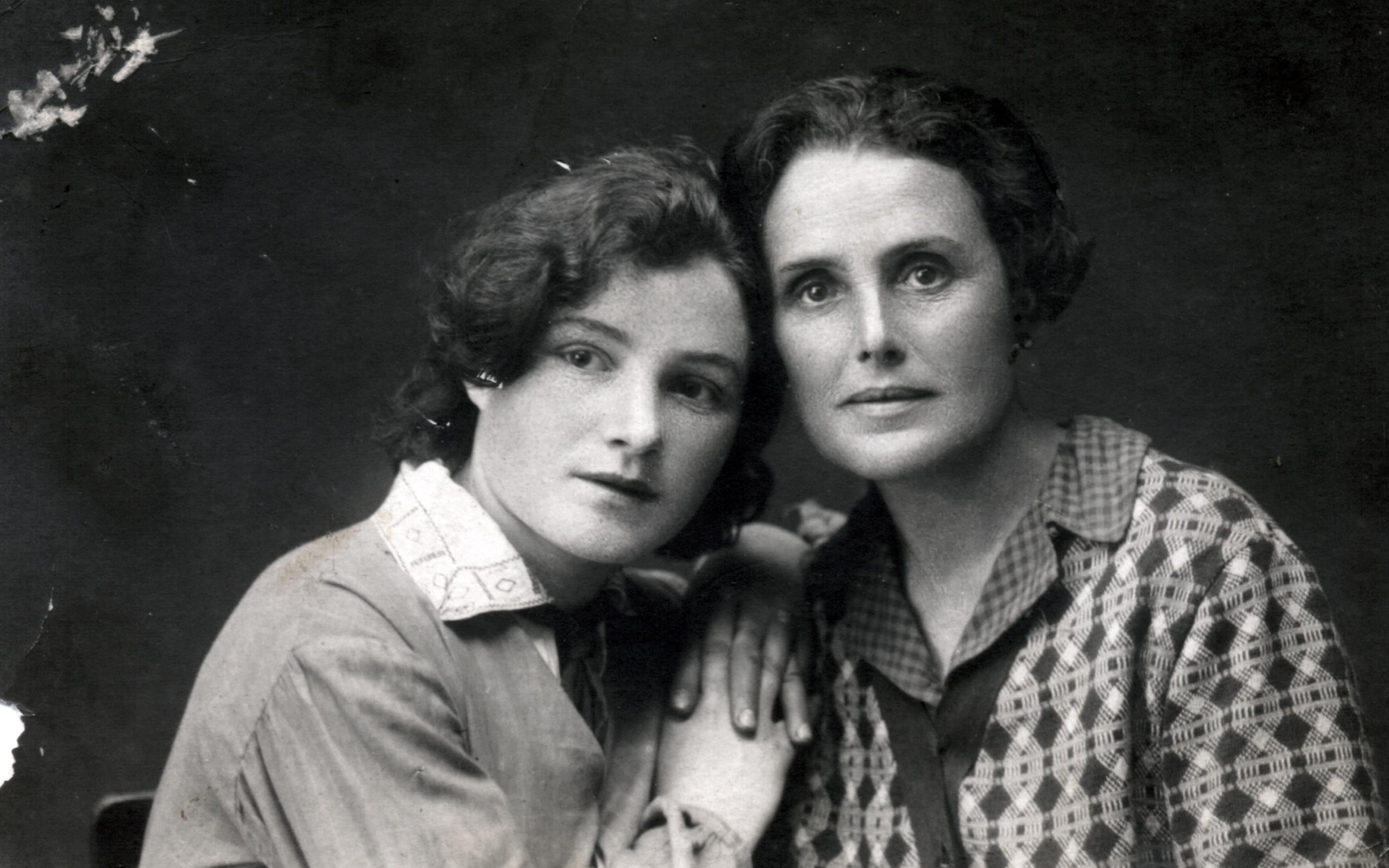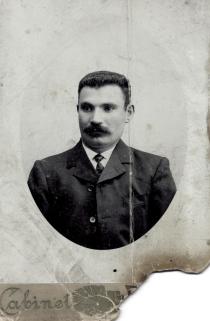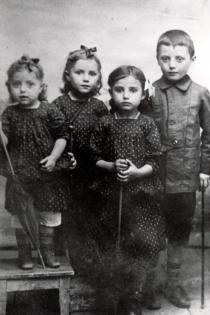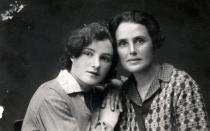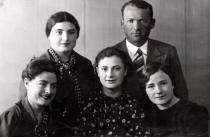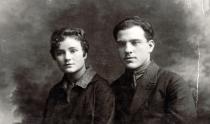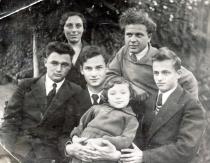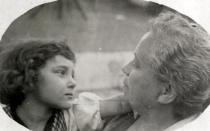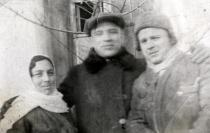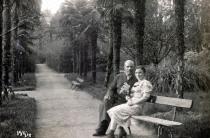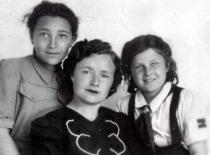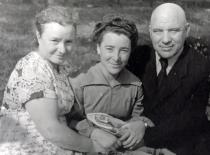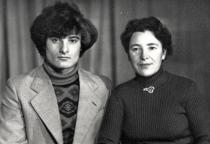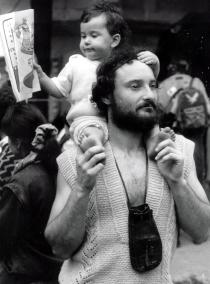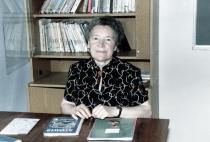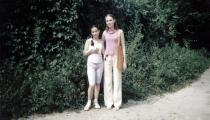My mother Gita and grandmother Fania Dubrova photographed on my grandmother's 40th birthday. Yuzovka, 1926.
My grandmother Faina Dubrova - I don't know her nee name - must have also been born in a Jewish agricultural colony near Mariupol in 1886. My grandmother was a beautiful woman: she was of average height, slim and had big eyes. She was reserved and quiet and had a great sense of humor. I remember her saying after she climbed the fifth floor and became short of breath 'I am short of breath as if I were an old woman'. She didn't like black clothes. Neither my grandmother Fania (how the russians called her) nor my paternal grandmother Sarah had any national accessories in their clothing when I knew them.
My grandfather died of diabetes in 1914 when my mother was 4 years old. My grandmother had to raise five children. Her mother also lived with them. Grandmother Fania could read and write in Yiddish, knew all Jewish rituals and rules. Yuzovka was a small patriarchal town and my grandmother was almost the only Jewish woman with education. She read prayers to women at the synagogue on holidays (and other women were listening and repeating after her) and earned some money in this way. Grandmother Fania also grew poultry supplying fat and down to wealthy families. The children made boxes for a match factory. In 1920s, after the Civil War, my grandmother leased the forge to an Austrian captive blacksmith.
However poor they were my grandmother took girls to the theater. It was her dream that my mother would learn to play the piano and Ania would become a ballerina. Shura and my mother studied in a Jewish private grammar school for 2 years. This was grammar school for girls: they studied Hebrew and religion, manners, housekeeping and general subjects like mathematic and literature. We studied in Yiddish.
My grandmother strictly followed Jewish traditions: my mother told me that they spoke Yiddish, had kosher food and on Friday my grandmother lit candles. They had special tableware and utensils for Pesach. They had plentiful Seder and all traditional Jewish food on their table.
My mother believed that if it hadn't been for the revolution of 1917 their family would have remained poor and that she owed everything she had to the revolution. Her sisters were doing well. Ania got a higher education. My sister and I and my mother's nephews and nieces also got a higher education.
My mother had to go to work when she was in her teens. In 1924 an employment office sent her to the plant at the Mining institute. My mother became an apprentice in a shop, but when her supervisor noticed that she had a nice handwriting she became a ship forwarder for shipment of casting. Since my mother was a clerk she couldn't enter a higher educational institution since they only admitted workers and children of workers. She didn't have any certificate or diploma and to get a document about some education she went to study at a course of Roentgenologists. After she finished this course she got a job related to her profession where she worked several months, but she had an urge to literary activities: writing poems, in particular. She used to say that poems were reflection of life. My mother was a self-educated woman, but she was smart and intelligent and had intelligent friends. She attended a literary club and all meetings with poets that came on tours. She knew some Ukrainian and Russian poets.
